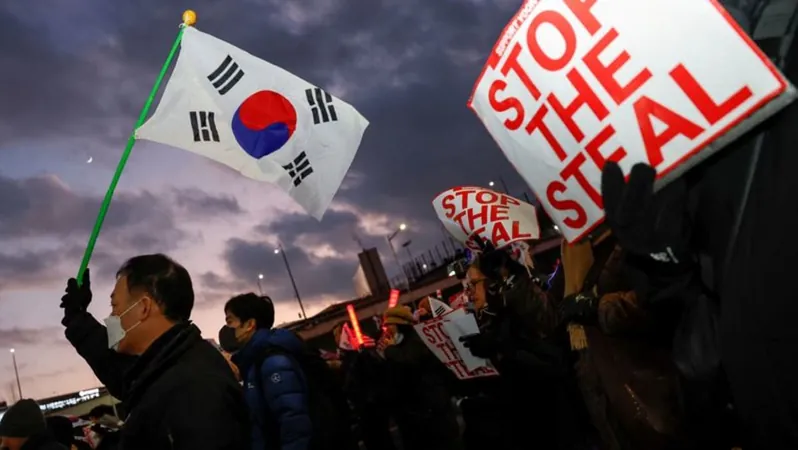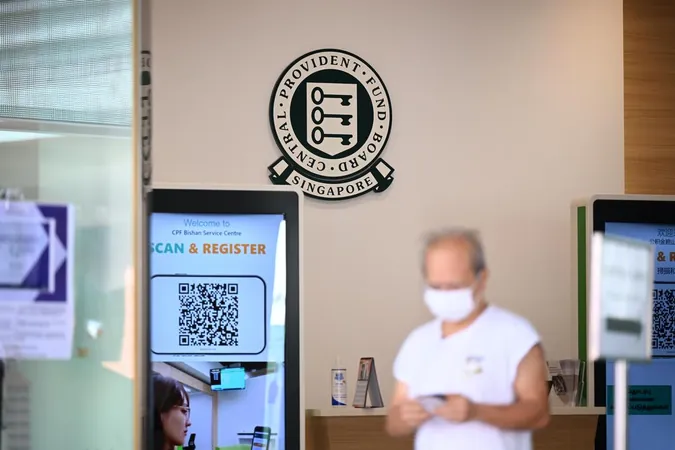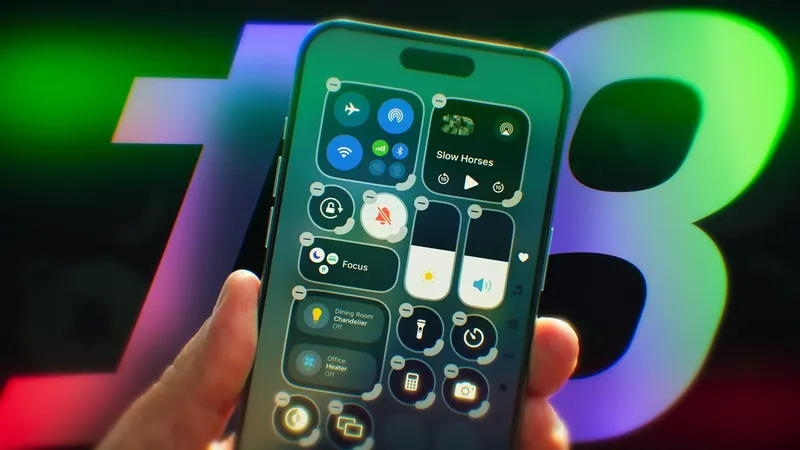
Tumultuous Times in South Korea: Yoon Suk Yeol's Impeachment and Allegations of Election Fraud Draws Trump Parallel
2025-01-20
Author: Sarah
SEOUL: As South Korea grapples with political unrest, the parallels between the controversy surrounding President Yoon Suk Yeol and former U.S. President Donald Trump are striking. Just as Trump cast doubts on the integrity of the 2020 presidential election, Yoon’s supporters are rallying behind claims of election fraud following his impeachment and recent arrest.
Yoon Suk Yeol's Controversial Actions
Yoon, the first sitting president in South Korean history to face arrest, is under fire for attempting to declare martial law on December 3, allegedly as a response to purported election fraud. This drastic step sent shockwaves through the nation, which ranks as Asia's fourth-largest economy, plunging it into chaos.
Public Unrest and Support for Yoon
In a dramatic display of defiance, supporters stormed a court building last Sunday, reacting violently after Yoon's detention was extended. This unrest reflects a broader discontent with the political landscape, amplified by the echoes of Trump’s “Stop the Steal” rhetoric that now appear on placards at pro-Yoon rallies in Seoul.
Voices from the Supporters
Supporters of Yoon, such as university student Hong Hyeon-young, express hopes that heightened attention from Trump could bolster Yoon's plight. “We are facing serious election fraud and a huge threat from pro-North spies who want to endanger the South Korea-US alliance. I hope he (Trump) will pay attention to South Korea and provide strong support,” she asserted.
International Relations and Historical Context
The connection between Yoon and Trump became more apparent when Yoon met with Matthew Schlapp, chairman of the American Conservative Union, shortly after his impeachment. Their discussions reportedly focused on the political upheaval tearing through South Korea, including details about the martial law declaration.
Historically, the U.S. and South Korea share a robust military alliance, with almost 30,000 American troops stationed in the country as a deterrent against North Korea’s threats. This support is deeply ingrained in the national psyche, especially among older generations who vividly recall the U.S. intervention during the Korean War in the 1950s.
Divided Public Sentiment
Yoon’s supporters are keen to bring international awareness to their grievances, which they believe are exacerbated by the Democratic Party's actions, now the ruling opposition. Many are rallying to push back against perceptions of tyranny within the parliamentary majority.
However, public sentiment is sharply divided. A majority of South Koreans are calling for Yoon’s impeachment, emphasizing that the declaration of martial law was an unjustifiable act. Critics argue that such actions have severely damaged South Korea's international reputation, with one resident noting that “the country’s prestige and standing fell significantly and its international credibility was also greatly diminished.”
Political Implications and Future Prospects
Amid this political turmoil, Yoon's approval ratings have shown signs of recovery, which analysts attribute to dissatisfaction with both Yoon’s approach and the potential alternative candidates, like Lee Jae Myung from the Democratic Party, who himself has faced legal troubles.
As the Constitutional Court deliberates Yoon’s potential impeachment, the outcome could reshape South Korea's political landscape. If upheld, it could lead to a new presidential election within 60 days, marking a significant juncture in the nation's tumultuous journey toward democratic stability.
Stay tuned as this story unfolds, revealing the complex dynamics that continue to evolve in South Korea and the impact of international political narratives!





 Brasil (PT)
Brasil (PT)
 Canada (EN)
Canada (EN)
 Chile (ES)
Chile (ES)
 Česko (CS)
Česko (CS)
 대한민국 (KO)
대한민국 (KO)
 España (ES)
España (ES)
 France (FR)
France (FR)
 Hong Kong (EN)
Hong Kong (EN)
 Italia (IT)
Italia (IT)
 日本 (JA)
日本 (JA)
 Magyarország (HU)
Magyarország (HU)
 Norge (NO)
Norge (NO)
 Polska (PL)
Polska (PL)
 Schweiz (DE)
Schweiz (DE)
 Singapore (EN)
Singapore (EN)
 Sverige (SV)
Sverige (SV)
 Suomi (FI)
Suomi (FI)
 Türkiye (TR)
Türkiye (TR)
 الإمارات العربية المتحدة (AR)
الإمارات العربية المتحدة (AR)